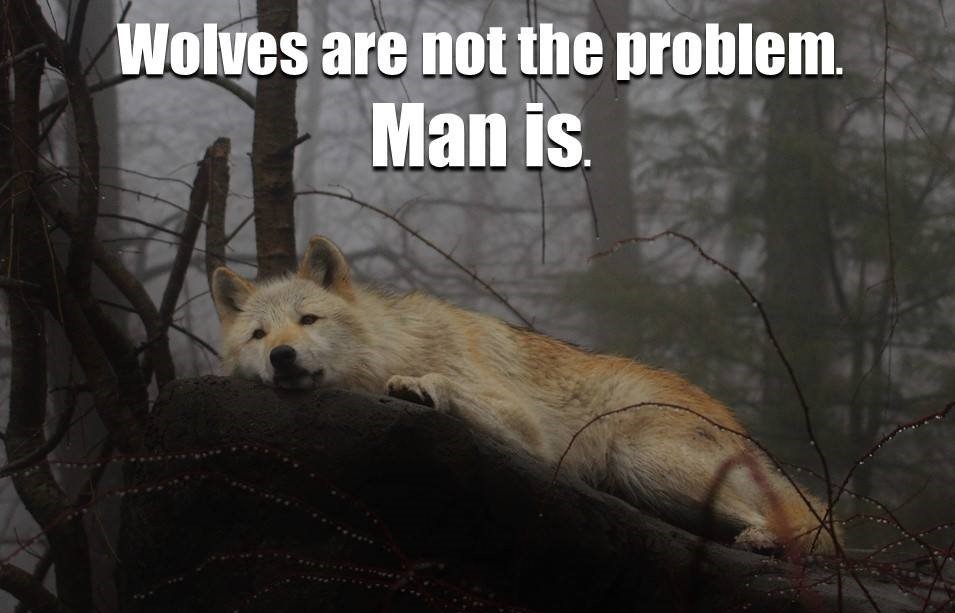
10 REASONS WHY WOLVES ARE IMPORTANT FOR OUR NATURAL WORLD:
Reason #1: Without wolves and other large predators, ecosystems can collapse. Studies have found that when wolves went extinct in Yellowstone, for example, the Moose and Elk population ballooned from normalcy and destroyed woody vegetation where birds nested. Thus, many bird species were disappeared in the park.
Reason #2: Scavengers thrive when wolves are around. Many species benefit from the remains left behind from a Wolf kill. Species such as ravens, magpies, wolverines, bald eagles, golden eagles, weasels, mink, lynx, cougar, grizzly bear, chickadees, masked shrew, great gray owl, and over 400 species of beetle.
Reason #3: Wolf kills are also good for the soil. A study in Michigan’s Isle Royale National Park found that wolf-killed elk carcasses dramatically enhanced levels of nitrogen and other nutrients.
Reason #4: Wolf kills feed more animals than hunting by humans. Wolves scatter their carrion over the landscape - this benefits three times more species than human hunting kills since hunters usually leave piles of their kill that often left behind and rot and is not consumed by wildlife. The skeletons of carrion of Wolves are picked clean by wolves and scavengers in less than five days.
Reason #5: When wolves were decimated from Yellowstone, coyotes preyed on pronghorn almost to the point of no return. But since wolves have returned, the pronghorn has come back. In fact, pronghorns tend to give birth near wolf dens, since coyotes steer clear of those areas.
Reason #6: Because Chronic Wasting Disease is a major threat to elk and deer in the West. Wolves can help by reducing sick animals’ lifespans, in turn limiting the amount of time they can spread infections. Deer and elk congregate in smaller groups when wolves are around. This helps reduce the transmission of illnesses like Chronic Wasting Disease.
Reason #7: When wolves are present, Elk are less likely to overgraze near rivers and streams that is damaging to these fragile ecosystems—
Reason #8: Wolves help work against climate change. A UC Berkeley study in Yellowstone concluded the milder winters, an effect of climate change, have led to fewer elk deaths. This left scavengers like coyotes and ravens scrambling for food, but the problem was far less ubiquitous in areas where wolves hunted.
Reason #9: Wolf tourism is a huge economic benefit. The Restoration of wolves in Yellowstone cost estimate of $30 million, BUT Wolves presence in YNP brings in approximately $35.5 million annually that economically perk towns & areas surrounding the park. This is an example of success when we turn to ecotourism for revenue.
Reason #10: Last but not least… Their beauty in Nature as vital predators is obvious. But they deserve to be what nature has intended for them to be. They deserve to live and thrive.

